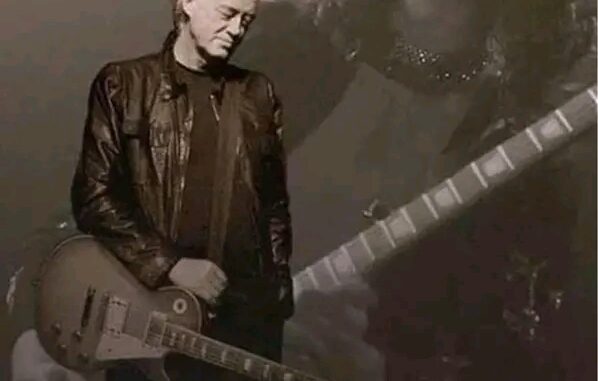
Jimmy Page Emphasizes the Emotional Power of Music Over Technical Skill
In a candid reflection on his musical philosophy, legendary guitarist Jimmy Page has expressed his disillusionment with the obsession over rankings and technical prowess in the music world. Instead, Page underscores the importance of emotional expression, asserting that true music transcends technicality and resides in the soul.
The Led Zeppelin icon articulated his stance in a recent interview, stating, “I hate rankings about who is better. I don’t deal with technique, I deal with emotions.” These words resonate deeply with fans and musicians alike, highlighting a perspective that values authenticity and emotional connection over superficial virtuosity.
Page’s comments come amid a broader conversation about the evolving landscape of music appreciation. In an era where social media and online platforms often elevate musicians based on technical displays or flashy performances, many artists and listeners are reconsidering what truly matters in music. For Page, the essence of a memorable performance lies in its ability to evoke feelings, to communicate stories, and to touch the listener’s soul.
He further elaborates, “I am no longer interested in hyper-technical and funambolic musicians who are not capable of transmitting emotions. Better four notes expressed with the soul than a thousand without them.” This sentiment echoes the philosophy of many legendary artists who prioritized emotional depth over technical complexity. For Page, music is about storytelling and connection, not about showcasing every possible skill.
To illustrate his point, Page references iconic musicians known for their profound emotional impact. “Think of Robert Johnson, B.B. King, Chet Baker, Joao Gilberto,” he lists. Each of these artists, despite varying styles, share a common trait: their ability to convey deep feelings with simplicity and sincerity. Johnson’s haunting blues, B.B. King’s soulful guitar solos, Chet Baker’s fragile trumpet melodies, and Joao Gilberto’s delicate guitar and voice all exemplify music that communicates emotion directly and powerfully.
Page also mentions Charlie Watts, the legendary drummer of The Rolling Stones, as embodying this philosophy. “Charlie Watts was for me the essence of the Stones sound, without doing any spectacular stunts,” he notes. Watts’ understated style, emphasizing groove and feel over showmanship, became a defining element of the band’s identity. While some fans and critics may have sought flashier performances, Page admires Watts’ ability to maintain musical integrity through subtlety and emotion.
Reflecting on the proliferation of “lists” and rankings that dominate modern music discourse, Page emphasizes that music should not be a competition. “I’ve read a lot of posts about lists of musicians but for me music isn’t competition, it’s sharing,” he states passionately. For him, the true value of music lies in its ability to connect people, to share stories and feelings across boundaries, rather than to establish hierarchies of skill or fame.
This perspective resonates with many artists and fans who see music as a universal language rooted in emotional expression. In a world increasingly driven by metrics, likes, and rankings, Page’s words serve as a reminder of the core purpose of music: to evoke feelings, to tell stories, and to foster human connection.
Jimmy Page’s stance also challenges aspiring musicians to prioritize emotional authenticity in their craft. In interviews over the years, he has often spoken about the importance of feeling and soul in his playing. His legendary riffs and solos, from “Stairway to Heaven” to “Whole Lotta Love,” are celebrated not just for their technical brilliance but for their ability to convey powerful emotions.
In conclusion, Jimmy Page’s reflections highlight an enduring truth about music: that its greatest power lies in its ability to move us emotionally. Whether through a few heartfelt notes or complex improvisations, the genuine connection between artist and listener remains the heart of musical expression. As Page suggests, it’s not about being the best technically but about sharing something real, something soulful—because ultimately, music is about emotion, not competition.
Leave a Reply